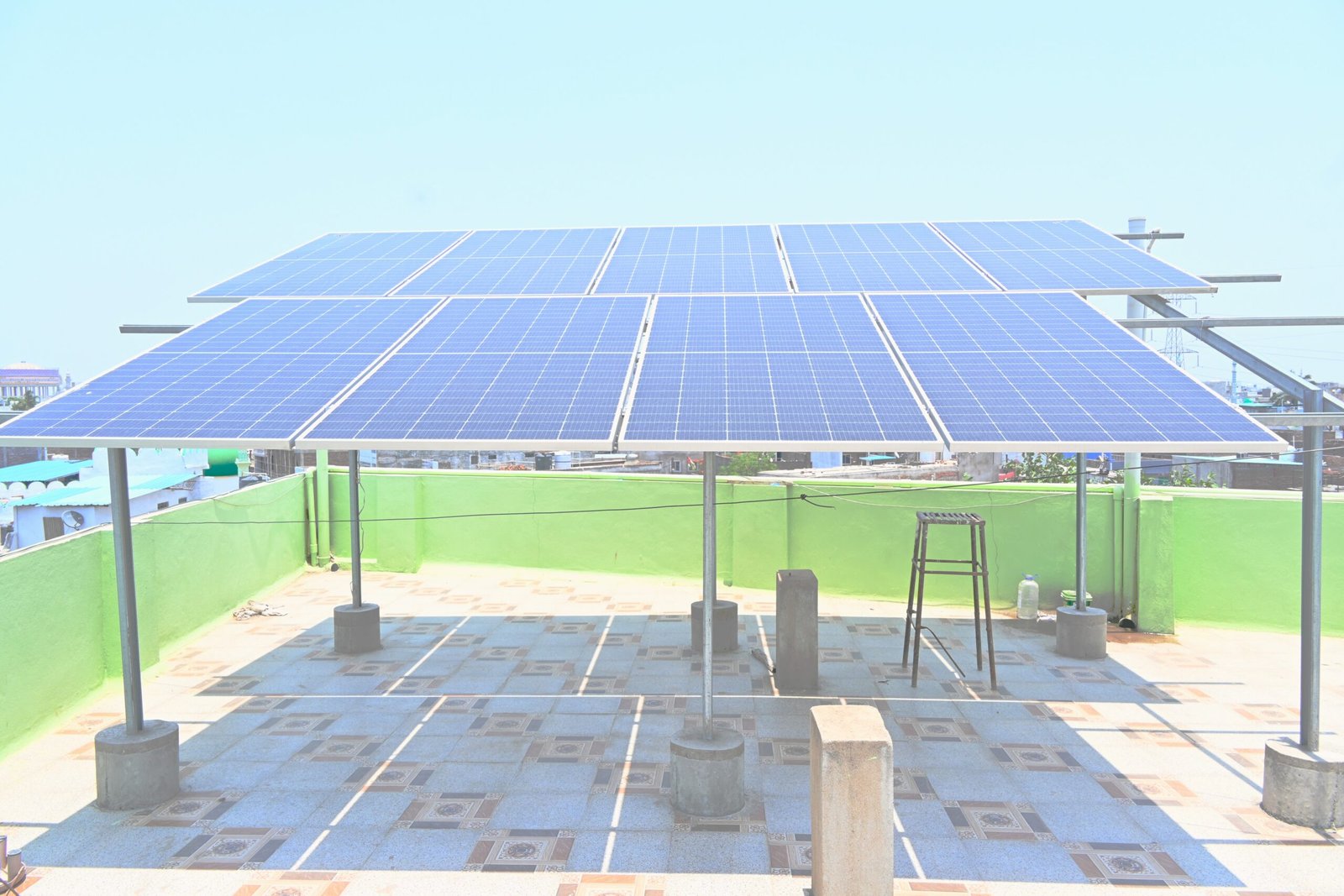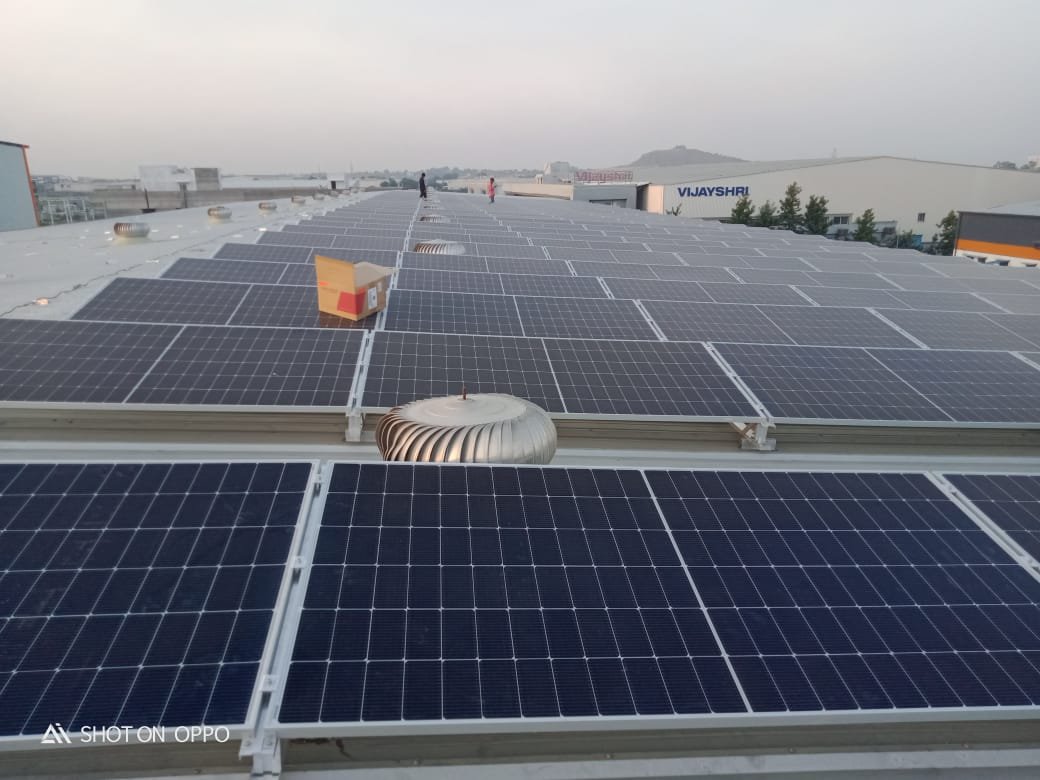Services
Protect Our Earth: Keep It Clean and Green
Make the Sustainable
Energy Choice for Business Success
and a Healthier Planet

Solar Panel Installation
Efficient, eco-friendly solar panel installation harnesses sunlight to generate electricity, reducing carbon footprint while promoting sustainability and energy independence.

Solar System Design
Solar System Design encompasses the strategic arrangement of solar panels, optimizing orientation, technology, and integration to harness solar energy efficiently,

Solar Financing Options
Explore leases, loans, and incentives tailored for solar installations, cost-effective adoption of renewable energy, promoting sustainability and reducing reliance on traditional power sources.

Solar Energy Audits
Evaluating system performance, identifying inefficiencies, and recommending improvements to enhance solar energy utilization and cost-effectiveness.

Solar Battery Storage
Storing excess energy generated by solar panels for later use, ensuring reliable power supply even during periods of low sunlight, enhancing sustainability and energy independence.

Commercial Solutions
Tailored services and products designed to meet the unique needs of businesses, providing innovative solutions for operational efficiency, growth, and success in diverse industries and markets.

- Cost Savings: Residential solar systems can significantly reduce or eliminate monthly electricity bills, leading to long-term cost savings for homeowners.
- Environmental Sustainability: By using solar energy, homeowners reduce their reliance on fossil fuels, lower greenhouse gas emissions, and contribute to a more sustainable environment.
- Energy Independence: Residential solar provides homeowners with greater control over their energy supply, reducing dependence on traditional utility companies.
- Increased Home Value: Homes equipped with solar panels often have higher resale values, attracting eco-conscious buyers and potentially selling faster in the real estate market.
- Financial Incentives: Many regions offer financial incentives, tax credits, and rebates for installing residential solar systems, making them more affordable and providing a quicker return on investment.
- Inverters: Inverters are used to convert the direct current (DC) electricity generated by solar panels into alternating current (AC) electricity, which is compatible with household appliances and the grid.
- Energy Storage: Some residential solar systems include energy storage solutions, such as batteries, to store excess solar energy for use during the night or during power outages.
- Net Metering: Many homeowners with solar installations can take advantage of net metering, which allows them to earn credits for surplus electricity they feed back into the grid, further reducing energy costs.
- Monitoring Systems: Residential solar systems often come with monitoring systems that enable homeowners to track their energy production and consumption in real time, helping them optimize their energy usage.
Residential Solar
Residential solar refers to the installation of solar energy systems, including solar panels, inverters, and often energy storage solutions, on residential properties such as homes and apartments. These systems harness sunlight to generate electricity for household use, providing a sustainable and renewable energy source for homeowners.
Transforming rooftops into power hubs, residential solar installation brings the promise of sustainable energy to homes across the globe. Harnessing the sun's abundant rays, these installations elegantly integrate photovoltaic panels into residential architecture, converting sunlight into clean electricity. Whether it's sleek panels adorning urban townhouses or sprawling arrays atop suburban homes, residential solar installations offer more than just energy independence—they represent a commitment to environmental stewardship and a future powered by renewable resources. From initial assessment to meticulous placement, installation, and connection to the grid, each step is meticulously orchestrated to maximize efficiency and minimize environmental impact. Embracing the shift towards renewable energy, residential solar installation is paving the way for a brighter, greener tomorrow, one rooftop at a time.
Commercial Solar
Commercial solar refers to the installation of solar energy systems, including solar panels, inverters, and often energy storage solutions, on commercial properties such as businesses, industrial facilities, government buildings, and institutions. These systems harness sunlight to generate electricity for commercial use, providing a sustainable and cost-effective energy source for organizations.
Commercial solar installation brings the promise of sustainability and cost-efficiency to businesses large and small. These installations represent a bold step towards reducing carbon footprints and embracing renewable energy sources in the corporate landscape. From towering office buildings to expansive industrial complexes, commercial solar installations seamlessly integrate photovoltaic technology into existing structures or as standalone solar farms, converting sunlight into a reliable and environmentally friendly power source. Each installation is tailored to meet the unique energy needs and space constraints of the commercial entity, with meticulous planning, design, and implementation ensuring optimal performance and return on investment.

- Environmental Sustainability: By using solar energy, commercial entities reduce their carbon footprint and demonstrate a commitment to environmental responsibility, which can enhance their corporate image.
- Energy Independence: Commercial solar provides businesses with greater control over their energy supply and protects against rising energy costs, helping to stabilize operating budgets.
- Tax Incentives and Credits: Many regions offer tax incentives, credits, and accelerated depreciation for commercial solar installations, making them a financially attractive option.
- Marketing and Branding: A commitment to clean energy through commercial solar can be a powerful marketing and branding tool, attracting environmentally conscious customers and investors.
- Energy Storage: Some commercial solar systems include energy storage solutions, such as batteries, to store excess solar energy for use during peak demand periods or during power outages.
- Grid-Tie Systems: Many commercial solar installations are grid-tied, meaning they are connected to the local electrical grid. This allows businesses to benefit from net metering and sell excess energy back to the grid.
- Monitoring and Control: Commercial solar systems often come with advanced monitoring and control features, allowing businesses to track energy production, consumption, and system performance in real-time, enabling better energy management and optimization.

- Environmental Responsibility: By harnessing solar energy, industrial facilities can reduce their carbon footprint and demonstrate a commitment to environmental sustainability, aligning with increasingly stringent environmental regulations.
- Energy Independence: Industrial solar provides businesses with greater control over their energy supply and insulates them from fluctuating energy prices and grid-related issues.
- Enhanced Corporate Image: Adopting industrial solar can enhance a company’s corporate image and sustainability profile, which can be valuable for branding, attracting investors, and satisfying customers’ environmental expectations.
- Long-Term Financial Stability: Solar investments offer long-term financial stability by locking in energy costs and providing a predictable return on investment over the life of the system.
- Inverters and Transformers: These systems incorporate sophisticated inverters and transformers to efficiently convert solar-generated DC electricity into usable AC electricity for industrial processes.
- Energy Storage Solutions: Some industrial solar systems incorporate energy storage solutions, such as battery banks, to store excess energy for use during periods of high demand or when the sun is not shining.
- Advanced Monitoring and Control: Industrial solar installations often include advanced monitoring and control systems that enable real-time tracking of energy production, consumption, and system performance for better operational management.
- Grid Integration: Many industrial solar installations are grid-tied, allowing facilities to draw power from the grid when solar production is insufficient and to feed excess energy back to the grid during surplus production.
Industrial Solar
Industrial solar refers to the installation of large-scale solar energy systems on industrial properties, manufacturing facilities, warehouses, and other large industrial complexes. These systems typically consist of numerous solar panels, inverters, and may include energy storage solutions. Industrial solar installations are designed to meet the substantial energy demands of large-scale industrial operations.
Industrial solar installation marks a pivotal shift in the energy landscape, as large-scale facilities harness the power of the sun to drive production and operations. These installations stand as monumental testaments to sustainability and innovation, spanning vast expanses of land or rooftops of industrial complexes. With cutting-edge photovoltaic technology, industrial solar installations generate substantial amounts of clean energy, powering factories, warehouses, and manufacturing plants with efficiency and reliability. Each installation undergoes meticulous planning and engineering, tailored to the unique energy demands and logistical considerations of industrial operations. From initial site assessment to system design, installation, and ongoing maintenance, every step is executed with precision to ensure maximum performance and longevity. Industrial solar installations not only reduce carbon emissions and energy costs but also bolster resilience and energy independence for businesses in the face of fluctuating energy markets. By embracing industrial solar, companies demonstrate a commitment to sustainability, innovation, and long-term viability in a rapidly evolving global economy.
